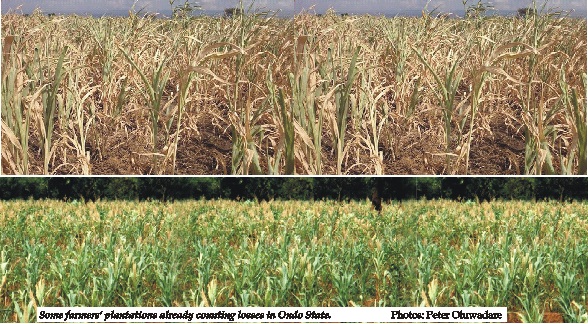CBN’s Financial Policies
THE Central Bank of Nigeria is swimming against the tide in a bid to ensure that the Naira regains its strength against strong but volatile currencies of the developed nations. Over the years, the rebase of the nation’s gross domestic product; review of interest rates; increases in the Value Added Tax and the implementation of inter bank transfer rates have been steps in the direction for development, but only very few Nigerians could accede to the efficacy of these ‘novel’ ideas as panacea to the nation’s economic challenges.
RECENTLY, the change mantra of the ruling party was extended to the nation’s currency which eventually saw the adornment of the Naira with coats of many colours. This ‘re-colouration’ of the naira was expected to curb demands for ransom by kidnappers, tackle and reduce the inflation rates, as well as drive the cash policy of the Central Bank of Nigeria. THE HOPE however observes that apart from reducing the amount of loose cash in the political system, the cost of consumer items in the market have not reduced thereby ensuring that the interest remains high. These, coupled with the scarcity of money and the attendant price volatility of crude oil derivatives have contributed in no small measure to the rising inflation in the country.
WE are much concerned that the swift and forced transition from currency-based market to cashless flows, though modern, may not deliver its dividends to most Nigerians, given the nation’s technical inhibitions. Beyond the issues of connectivity, limited coverage of the internet, digital frauds and power outages, loading the new currencies on ATMs have also been problematic. Given that only one denomination of the new notes has passed the test of seamless dispensation on the teller machines, re-configuration of the ATMs to identify and dispense the new notes has become a herculean task. All over the country there is evidence of either hoarding or shortage of the new currency in most commercial banks.
FURTHERMORE, the mandate by the CBN on immediate stoppage of the Over-the-Counter payment of the new N200, N500 & N,1000 currency, presents a government institution that was ill-prepared for the innovative change it proposed. Given the January 31st deadline for the withdrawal of all former currencies of these denominations, THE HOPE wishes that the CBN would state in clear terms when Nigerians should start rejecting the outgoing currencies from Banks. This is more important as neighbouring countries may also reject the naira in exchange for francs, cedis and other regional currencies. If the CBN allows these neighbouring countries to present the old currencies for swaps beyond the January 31st deadline, then the nation should expect more cases of money laundering. However, if the date is adhered to both locally and internationally, then the demand for foreign currencies now is expected to increase, and that would contribute in no small measure to the free fall of the ailing Naira.
THE CBN’s reaction to the issues raised in our past Editorial on the plight of the unbanked, and rural dwellers who have no access to banks is commendable. Now that the CBN has introduced a cash swap deal through specified agents, one would expect that many farmers, petty traders, and senior citizens could heave a sigh of relief. However, we also observe that the limit of cash swap to N10,000 per person may not be convenient to these set of people. Given that agents could open a wallet or bank accounts for them to store ‘excess’ cash sounds good theoretically, but would be hindered by the same technical, trust and educational issues. Given the few days left, this ‘Fire Brigade’ policy approach would not give ample time for many senior citizens, and especially those in ‘terrified’ territories to change all their currencies, and that would have both economic and psycho-social consequences.
THE CBN however should be commended on the bold step of introducing the domestic card scheme which would reduce the operating costs of cards in the country for all. Being optimized solely for the Nigerian market, support for micropayment and credit, e-government, identity management, transportation, health, and agriculture as per payments the domestic card would generate revenue to the nation and her people, as well as ensure the rapid settlement of issues that typifies most card transactions in the country. With the card coming into effect from January 16th, many Nigerians would avail themselves the opportunities of the credit cards to access urgent funds, avoid loan sharks and meet urgent daily needs. The restriction to the domestic market is also a right step in the right direction as it would give ample chance, and time for the CBN to address issues that may arise from the use of the cards, perfect it before engaging it internationally.
THE Hope is persuaded that the CBN means well for this nation, however, the institution should give listening ears to Nigerians, extend the time for the cash swap and also work with other ministries and agencies of government so as to ensure that the intended cashless policy, rather than being dead on arrival, would be a success worth emulating by other nations in Africa.










